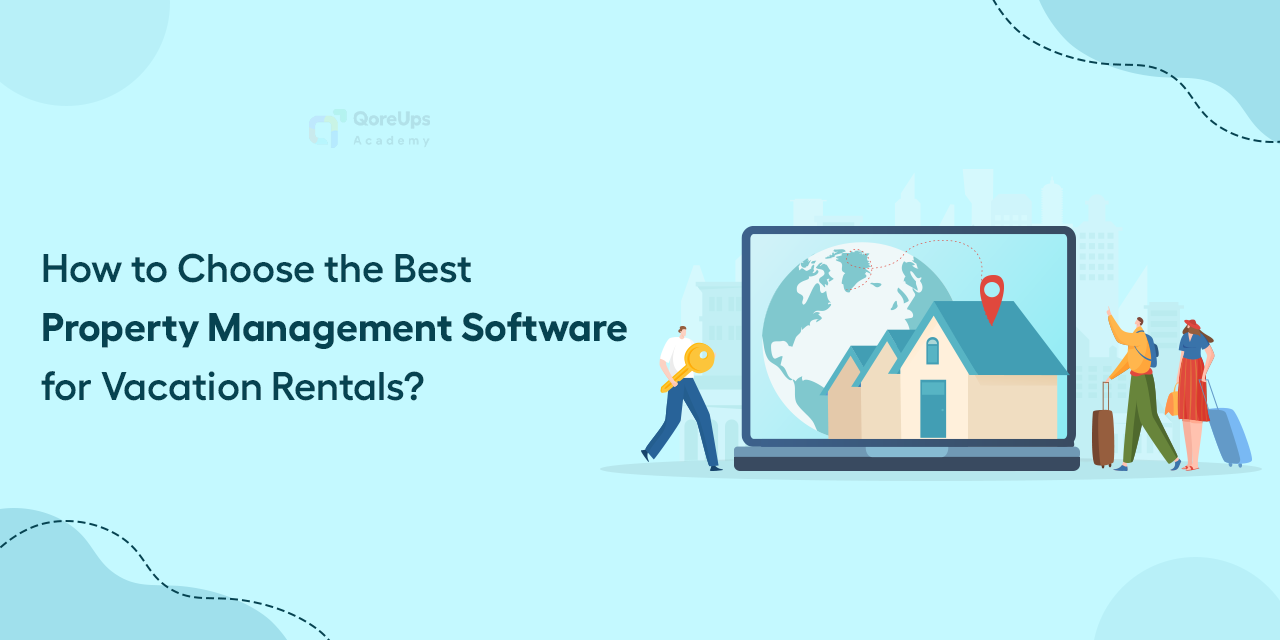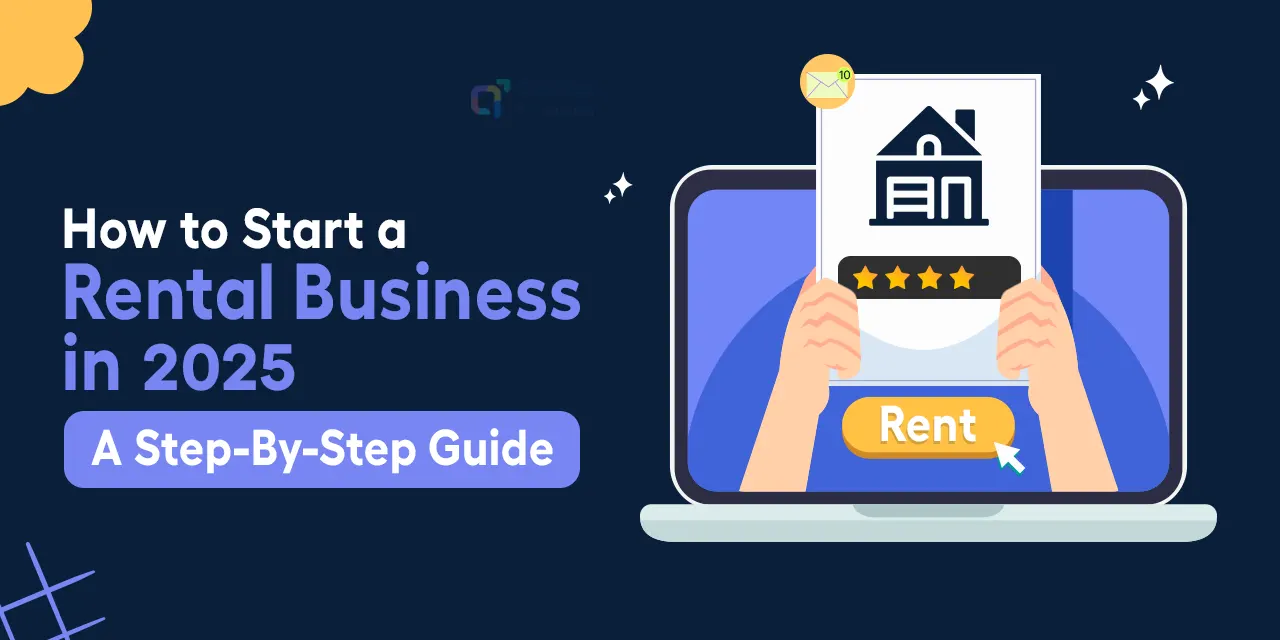“Best property management software for vacation rentals helps save time, simplifies bookings, boosts guest satisfaction, and grows your rental business.”
Managing vacation rental properties used to mean piles of paperwork, missed calls, and late rent checks slipping through the cracks.
But those days?
They’re gone for good.
Today, landlords and property managers who still rely on spreadsheets and sticky notes are missing out big time.
Enter property management rental software: your new best friend for running a rental business with ease.
The property management software can transform your daily grind into a seamless operation. It keeps your cash flow steady.
With so many options out there, how do you pick the perfect fit?
Let’s take a closer look.
Why Property Management Software for Vacation Rentals Is a Game-Changer?

Imagine this: It’s check-in day. Instead of juggling calls and messages, you receive instant notifications that a new guest has booked your property.
Guests easily manage their reservations and payments from their phones or computers.
Meanwhile, you see property availability in real-time, and detailed financial reports are just a click away.
Sounds like a dream?
That’s exactly what vacation rental management software delivers. It automates guest bookings, streamlines communication, and simplifies day-to-day operations.
So you can focus on growing your business and delivering exceptional guest experiences.
Additional benefits:
Efficiency
Think about the countless hours spent manually tracking rent payments. Sorting paper leases. Juggling booking requests via phone calls and emails.
Property rental software automates all those repetitive tasks.
You get a dynamic centralized dashboard to manage every aspect of your business.
This centralized system provides real-time insights, so you always know the status of your properties, payments, and tenant requests without digging through files or inboxes.
Scalability
Managing multiple units manually can quickly become overwhelming.
Property management software allows you to scale seamlessly by centralizing all your property data in one place.
You can add hundreds of units without proportionally increasing the time and effort you spend.
The software organizes operations so efficiently.
You don’t need to juggle paper records and hire a large team for management. It makes growth practical and profitable.
Automation
Sending rent reminders, processing payments, screening tenants, and preparing financial reports are repetitive and time-consuming.
Property management software automates these critical processes.
For example, it can send automated rent reminders before due dates. Process payments online, improving cash flow.
These automations free up your time. They improve operational efficiency.
Guest Satisfaction
Guest experience is a crucial driver of your property’s success.
Property management software enhances experience by providing tenants with easy access to make bookings, online payment portals, and contact hosts—all from their smartphones or computers. They get satisfied.
Satisfied occupants are more likely to come back and rent your homes again and again.
And they are more likely to refer your service to others.
After you equip this software, the scenario would look like this:
You spend just one hour reviewing automated reports instead of 10 hours a week juggling bookings and chasing payments.
Your guest satisfaction scores soar thanks to smooth communication and hassle-free check-ins. You manage multiple vacation rentals effortlessly, save valuable time, and grow your business like a true pro.
If you don’t have proper guidance on starting a rental business, read our blog on how to start a property rental business.
Understand Your Management Needs Before You Dive In
Not all rental properties are created equal. Neither is property management software. You wouldn’t buy a sports car to haul furniture, right?
Here’s what to consider:
How big is your portfolio?
The size of your portfolio fundamentally changes how you manage day-to-day operations.
A solo landlord with a handful of vacation properties might prioritize simplicity and ease of use.
They can opt for software that helps track rent and booking requests.
They don’t want software with overwhelming features.
Conversely, a mid-sized or large property manager needs advanced features like effortless scalability, robust reporting, and team collaboration tools.
If you have any growth plans, better invest in software that scales with you.
What about legal compliance?
Legal compliance is not just a checkbox. It’s the backbone of responsible property management.
Rent laws, security deposit regulations vary by location and property type.
Software that stays updated with local and state regulations can protect you from costly legal pitfalls. This reduces legal risk. Plus, you can maintain a professional reputation.
By assessing your needs, you can choose the software that suits you best. The right software acts as a long-term partner in your growth and success. Choose wisely.
Features You Shouldn’t Compromise On

It’s tempting to pick software just because it’s cheap or popular.
But the wrong choice can turn your rental business into a headache factory.
Below is a checklist of must-have features.
Pick the property management software that includes all of them:
Social Login: Let renters log in easily with Facebook or Google—no more password resets every week.
Guest Tracking: Know at a glance who’s paid, who’s late, and rental details without digging through emails.
Inventory Management: Stay on top of unit availability, lease status, and upcoming vacancies with real-time tracking tools.
Online Rent Collection: Collect rent through multiple payment portals (PayPal, Stripe, Razorpay, UPI). No more trips to the bank.
Rental Applications & Quotations: Speed up leasing by letting guests book rentals on the go and get quotes online.
Security Deposit Handling: Automatically calculate, hold, and return deposits per local laws. Avoid disputes.
Financial Reports: From profit & loss to tax-ready reports, get financial clarity without an accountant.
Integrated Marketing: Marketing tools let you stay in touch with leads, current tenants, and even past renters.
Mobile Interface: Manage your properties from anywhere. Imagine approving a lease while waiting in line for coffee!
Budget Considerations

Budgeting for software feels like walking a tightrope.
Pay too much, and your profit margins shrink.
Pay too little, and you get stuck with buggy, limited features.
Here’s a more detailed breakdown to help clarify what you should consider before investing in software:
1. Subscription vs. One-Time Payment
Subscription Plans
These are typically monthly or annual fees that grant access to the software along with continuous updates, customer support, and often cloud-based access.
For most landlords, especially those managing more than a few units, subscriptions provide essential ongoing value:
Regular updates ensure the software complies with evolving landlord-tenant laws (e.g., rent control changes or fair housing compliance).
Scalable features can accommodate portfolio growth without needing to switch platforms.
Support access is crucial to resolving any technical issues.
One-Time Purchases
Some offer a flat fee for lifetime software access. While the upfront cost can be lower in the long run, these often fall short in today’s dynamic rental market:
Pay once upfront and avoid ongoing monthly or annual charges, which can be attractive for landlords with tight budgets.
May lack modern UI/UX design or intuitive workflows compared to newer products.
Ideal for straightforward operations, your portfolio is small, and you don’t anticipate frequent updates.
Verdict: Subscription-based software is often more “future-proof” and supportive of growth. One-time payments may suit landlords managing very stable, low-turnover portfolios.
2. Freemium Plans & Free Trials
Many rental software platforms offer free tiers or limited-time trials. However, not all are equal.
Freemium Plans
These are often designed to attract small landlords but may lock crucial features, such as tenant screening, payment gateways, or real time chat.
Ideal for experimenting, but often insufficient for professional property management.
Free Trials
These are time-bound (e.g., 14 or 30 days) but provide full access to premium features. You can evaluate the software thoroughly.
Best rule: During the trial, simulate a full leasing cycle. List a unit, accept an application, and collect a mock payment. Equip if the software seamlessly manages those tasks.
3. Pricing Models: Per-Unit vs. Flat Fee
Per-Unit Pricing
In per-unit pricing model, you’ve to pay for the number of units you list on the platform. Fee scales as per the size of your portfolio.
- Cost-effective model if you manage just a few properties.
- Keeps software affordable as you scale up slowly.
Flat-Fee Pricing
Flat-fee pricing involves a fixed monthly or annual charge regardless of the number of units managed. It’s particularly advantageous if you’re overseeing larger portfolios.
- Typically, flat-fee models grant access to the platform’s complete suite of tools.
- Simplifies your financial budgeting by eliminating variability based on portfolio fluctuations.
Tip: Calculate your break-even point. If flat-fee software is cheaper than the cumulative per-unit cost after a certain number of properties, upgrading makes sense.
Must Read: Rental Property Software for Small Landlords
Top Property Management Software for Vacation Rentals

The right property management software can save time, reduce stress, and help you grow. Here’s a quick rundown of highly rated software solutions that property managers consistently rely on:
QMarket
QMarket is a cloud-based platform supporting entrepreneurs in 150+ countries with an intuitive interface and comprehensive property management features.
Perfectly suits your vacation rental business, it prioritizes data security and offers affordable subscription plans (monthly/yearly).
It offers 14-day free trial.
QMarket’s Climactic Features
- Comprehensive listing and user management with real-time updates
- Integrated financial reporting, including profit & loss and cash flow tracking
- Robust security protocols, including data encryption and automated backups
Guesty
Guesty is a cloud-based vacation rental management platform designed to streamline operations for property managers handling multiple short-term rentals.
This rental management platform offers subscription plans with a free demo available.
Guesty’s Climactic Features
- Multi-channel calendar and booking management
- Automated guest messaging and task workflows
- Comprehensive reporting and analytics
Lodgify
Lodgify enables vacation rental owners and managers to create custom websites with direct booking capabilities.
It simplifies guest booking, channel management, and payment processing.
Lodgify offers monthly and annual plans with a 7-day free trial.
Lodgify’s Climactic Features
- Website builder with direct booking integration
- Channel manager syncing Airbnb, Booking.com, and others
- Online payments and automated guest communication
Hostaway
Hostaway is a scalable vacation rental management solution tailored for property managers growing their portfolios.
It combines channel management, automation tools, and analytics to maximize occupancy.
Hostaway offers flexible subscription plans. Demo available.
Hostaway’s Climactic Features
- Robust channel manager syncing multiple booking platforms
- Cleaning and maintenance scheduling tools
- Automated guest messaging and review management
Tokeet
Tokeet provides an all-in-one vacation rental software platform perfect for small to medium-sized property managers.
It offers automation for bookings, invoicing, and dynamic pricing, along with integrated channel management.
Tokeet features customizable pricing plans and offers a one-week free trial.
Tokeet’s Climactic Features
- Channel manager supporting Airbnb, VRBO, and more
- Booking automation with customizable templates
- Dynamic pricing and rate management
Ask These Questions Before You Commit
Don’t let shiny features fool you—get clear answers on these:
- Will this vacation property management software handle the number of properties I manage?
- Can it grow with my portfolio?
- How helpful is customer support?
- Is it user-friendly for my staff and tenants?
- Are backups automatic?
- What security features are available to protect sensitive data?
Best Practices To Implement Your Property Management Software for Vacation Rentals
Buying/subscribing to the property management software is just the first step. Here’s how to make it stick:
- Start with a demo or trial to test real workflows.
- Train Your Team Thoroughly Before Launch.
- Migrate data slowly. Don’t rush to avoid headaches.
- Show guests how the new system benefits them—ease of payments and requests!
- Monitor performance and collect feedback for 30–60 days.
Final Thoughts
Selecting the best property rental software for vacation rentals isn’t just determined by the flashiest features.
The best one matches your portfolio. It simplifies rental operations, improves customer satisfaction, increases revenue, and supports future growth.
- Start by clearly understanding your portfolio size, property types, and compliance requirements.
- Look for essential features like online booking, guest tracking, rent collection, mobile access, and financial reporting.
- Evaluate pricing models.
- Opt for a scalable solution.
- Prefer one with a solid support system and frequent updates.
- Take advantage of free trials to test-drive the software.
- Don’t forget to train your team and onboard tenants smoothly.
By equipping the proper property management software for vacation rentals, you’ll save time, reduce manual tasks, and run your business like a pro.
FAQs
1. What is property management software for vacation rentals, and who is it for?
Property management software for vacation rentals is a digital tool that helps landlords and property managers automate rent collection, inventory management, tenant communication, and financial tracking. It’s ideal for everyone managing vacation homes, from small landlords to big rental firms.
2. Is cloud-based software better than desktop software?
Cloud-based software offers flexibility, real-time updates, and remote access. It’s a perfect solution for modern landlords.
3. How much does property management software cost?
Costs range widely. It depends on the features you need and the portfolio size.
4. Is property management software secure?
Reputable vendors use encryption and backup systems to keep your data safe. Always verify security policies.
5. How long does it take to fully build property management software?
Custom software can take months. Even years. Ready-made or cloud-based solutions are usually the best bet.






